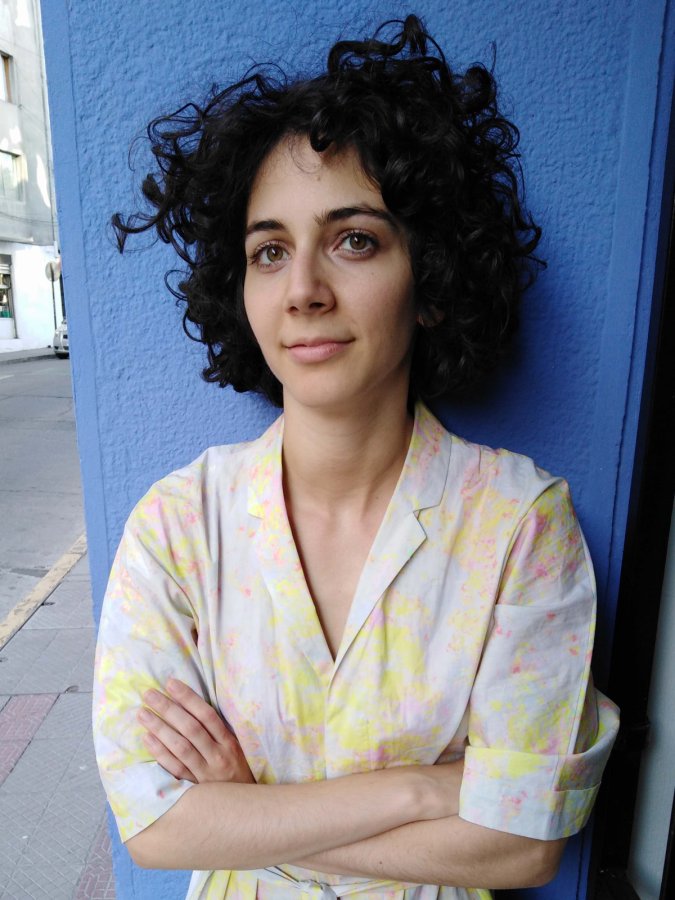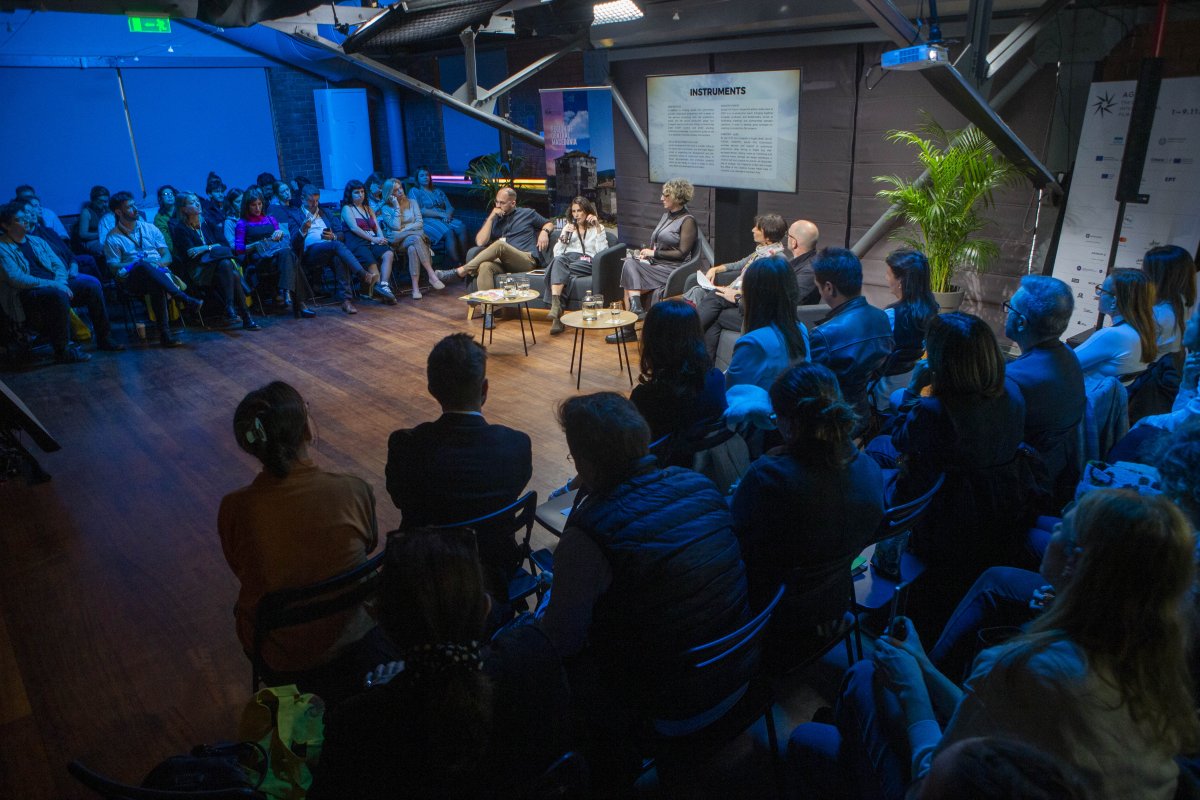The screening of the film Foragers by Jumana Manna took place at Olympion, on Saturday March 4th, in the presence of the director. Within the framework of the Festival’s collaboration with the Metropolitan Organization of Museums of Visuals of Thessaloniki - MOMus, the 25th Thessaloniki Documentary Festival is inspired by “Geocultura”, the thematic direction of the 8th Thessaloniki Biennale of Contemporary Art, and integrates in its program a special category of films, exploring the relationship between humankind and our surroundings.
The film Foragers was prefaced by the Festival’s Artistic Director, Orestis Andreadakis. Mr. Andreadakis referred to the close collaboration between the Festival and MOMus during the festivals of November and March, but also to the support of the 8th Thessaloniki Biennale of Contemporary Art, which turns its focus towards the notions of “earth” and “culture” and associates the cultivation of the earth with the spiritual culture as a totality of resources, essays and practices available to people, in order to understand the world and take action. It explores themes of memory, history and management, both of the natural and the anthropogenic environment, under the conditions of a climate, financial and refugee crisis.
Mr. Andreadakis thanked the president, the boards and the employees of MOMus and invited on stage MOMus’ artistic director, Thouli Misirloglou, and Maria-Thalia Carras, curator of the main exhibition. Ms. Misirloglou warmly thanked the Festival for the cooperation, mentioning that the main exhibition of MOMus - Museum of Modern Art has been open as of Saturday, while all scheduled opening events were canceled.
Maria-Thalia Carras then took the floor. “We are glad for our collaboration with the Festival. We are presenting two works by Jumana Manna: one is a sculpture piece at the museum of Byzantine Culture, and the second is the film Foragers, which we are about to watch”. Moving on, the director of the film mentioned that being at the Olympion is an honor for her and then thanked the audience for their presence.
The film Foragers combines elements of documentation and fiction, to capture the clash between the Israeli authorities for the protection of nature and the Palestinian livestock farmers. According to Israeli laws, collecting akkoub (a variation of the artichoke) and za’atar (thyme) is banned, which leads to hundreds of Palestinians being dragged to court after getting caught in action, collecting these endemic plants. For Palestinians, these laws are not but an ecological pretense, which estranges them even further from their land. On the other hand, representatives of the state of Israel insist on their scientific expertise and their duty to protect the environment from the uncontrollable human intervention.
After the screening, responding to an audience question, Jumana Manna stated the following: “Neither the earth nor the plant belongs to the people of Israel. Laws have been passed at the expense of Palestinians and the topic of the film is, exactly, who benefits from these laws”. Then, she referred to the broader situation of the protection of nature being turned into a state industry: “There is an Israeli monopoly regarding za’atar trading and a clear collaboration between state patrol and the industry. This relationship is worth being discussed. Its purpose was for the plant to gain an Israeli nationality, even though it’s mostly consumed by Palestinians. The same stands for akkoub, 40 years later. The main trader (who makes an appearance in the film) used to work on state patrols. Now, he sells the plant to Arabs. In my opinion, it is an issue of colonization, a case of profit gained at the expense of Palestinians”, she distinctively stressed.
Finally, she concluded by saying that the film, apart from quite a few tender family moments, also included many comic elements: “I hope I made you laugh, The state in Palestine is so irrational and humor is our main warfare against irrationality. The film is supposed to be essentially a comedy”.
















